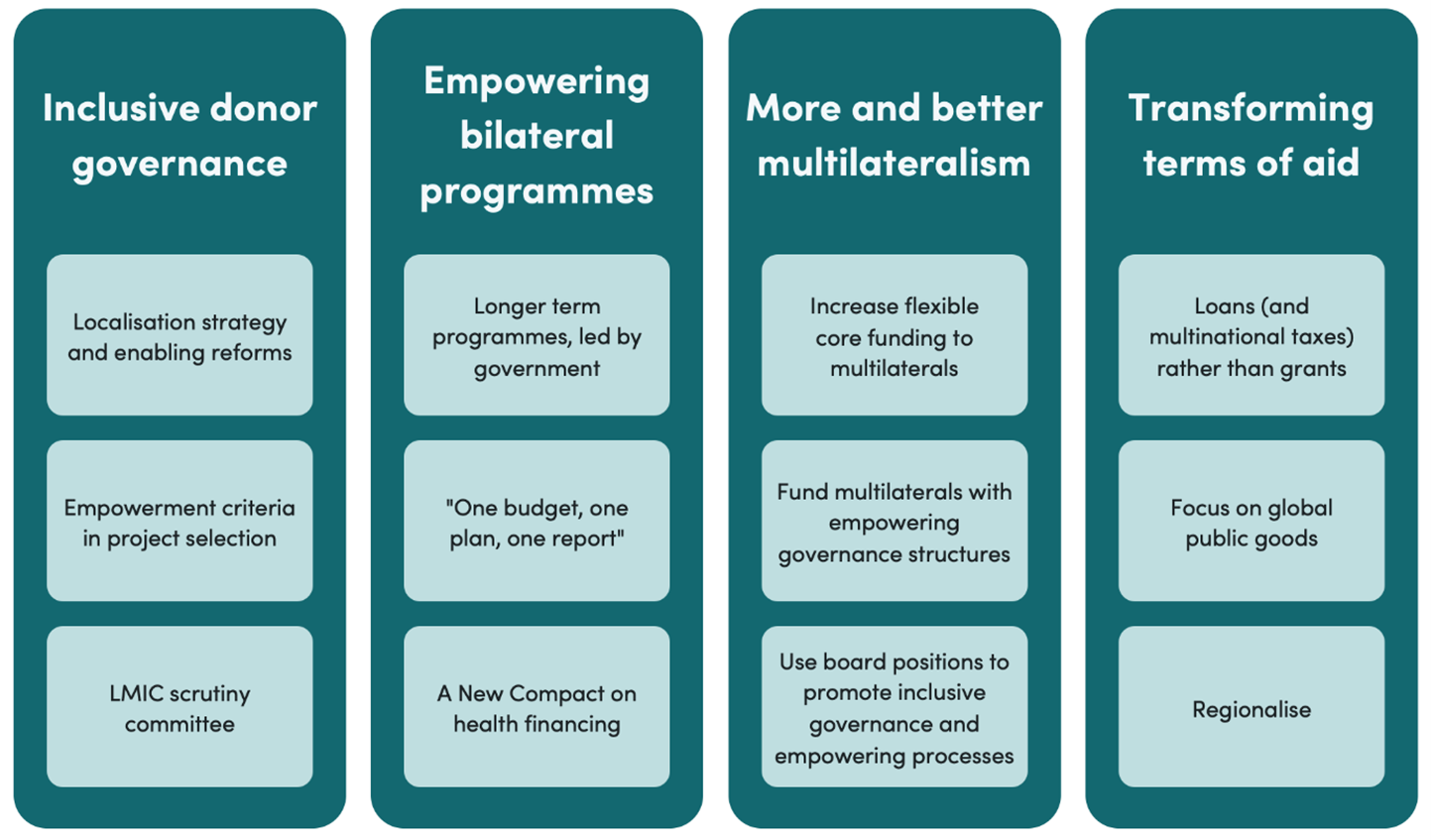With Nancy Birdsall and Rita Perakis
When we make presentations on COD Aid at development agencies, we are frequently told: “Oh, we’re already doing that.” The more we investigate, however, the fewer cases we find where agencies are really disbursing funds against independently verified outcomes in a hands-off fashion. We’re tempted to say “close but no cigar.” We recognize that agencies have been working hard for years to link disbursements to performance, but these operations tend to pay for activities and outputs rather than outcomes and are most commonly used for projects with well-known technologies and production functions.
For example, USAID uses a mechanism called a Fixed Amount Reimbursement Agreement (FARA) – under which USAID agrees to pay a price for a well-defined deliverable. This sounds a lot like COD Aid. However, FARAs are mainly used to finance outputs that are physical in nature and for which cost-structures are well known. It appears ideal for facilitating small infrastructure projects – like local roads, school construction or building clinics – where it can reduce transaction costs. And it is mainly used where USAID and the recipient have extensive experience and knowledge of how to produce the end-product. This differs from the situations for which COD Aid is designed – like improving student learning, lowering transportation costs, or maintaining low prevalence of malaria – cases where effective approaches are only partially known and local innovation is required to overcome political and institutional obstacles.
The World Bank has a large portfolio in its Global Program for Output-Based Aid (GPOBA) which is also an advance in linking payments to deliverables. But, again, the instrument does not really address the COD Aid goal of disbursing against outcomes. Like FARA, it primarily finances delivery of infrastructure with a salutary emphasis paying for fully functional services and is unlikely to address problems that are associated with broader public policy or which require significant local experimentation. The World Bank’s new Program-for-Results (P4R) modality could be used for COD Aid agreements. Nevertheless, the first round of P4R operations are quite cautious and disburse mainly against activities and outputs rather than outcomes. This is also a common feature of European Commission budget support programs and most multilateral development bank policy reforms.
All of these efforts to link payments to performance are laudable. In particular, USAID’s FARA and the World Bank’s GPOBA seem to be admirable ways of reducing transaction costs while assuring delivery of useful goods and services. But they do not address the development problems that require local innovation, broader policy reforms, or institutional changes. Such development problems can only be tackled by developing country governments themselves through iterative adaptation – a process that is more likely with a hands off, outcomes-focused approach like COD Aid.
Thanks to Beth Schwanke for feedback and suggestions.
CGD blog posts reflect the views of the authors, drawing on prior research and experience in their areas of expertise.
CGD is a nonpartisan, independent organization and does not take institutional positions.





